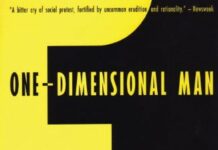
Ebook Info
- Published: 2020
- Number of pages: 409 pages
- Format: PDF
- File Size: 3.06 MB
- Authors: Herbert Marcuse
Description
Brilliant and penetrating … the most important work which has opened up an understanding of Marx’s humanism. – Erich FrommReason and Revolution: Hegel and the Rise of Social Theory is the philosopher Herbert Marcuse’s first major work in English – a masterful interpretation of Hegel’s philosophy and the influence it has had on European political thought from the French Revolution to the present day.Reason & Revolution, written in 1941, was the first Hegelian Marxist text to appear in English, the first systematic study of Hegel by a Marxist, and the first work in English to discuss the young Marx seriously. It introduced introduced Hegelian and Marxist concepts such as alienation, subjectivity, negativity, and the Frankfurt School’s critique of positivism to a wide international audience. Acclaimed for its profound and undistorted reading of Hegel’s social and political theory, the appreciation of Reason and Revolution has remained high, more relevant now than ever before. There is no better guide than Marcuse to where we have been and to what we might expect. The most influential radical philosopher of the 1960s, Marcuse’s writings are as relevant to today’s society as they were at the time they were written.”We fell in love with Marcuse’s mind, his method, his scholarship. We read everything he wrote… His book on Hegel and Marx, Reason and Revolution, was high on our list because we wanted to understand the intellectual origins of revolutionary Marxism.” – Dan La Botz, author of A Troublemakers’ Handbook: How to Fight Back Where You Work and Win!”A Marxian philosopher who became a hero to the student radicals of the 1960s because of his view that modern society has enslaved mankind” – The Washington Post”A guiding figure to many social activists” – The New York TimesAbout the authorHerbert Marcuse (1898-1979) was a philosopher, sociologist, and political theorist. He studied at the University of Berlin and the University of Freiburg, and became a crucial figure at the Frankfurt Institute for Social Research, and of the Frankfurt School of social theory. He was forced to leave Germany in 1933, eventually settling in the United States, where he would spend much of his life and taught at many of the country’s greatest schools and universities. A Hegelian-Freudian-Marxist, Marcuse highlighted the cultural forms of repression and the role of technology and the expansion of the production of consumer goods in the maintenance of the stability of capitalism. His classic studies of capitalist society were important influences on the New Left of the 1960s and 1970s and his libertarian socialism remains an important intellectual resource. Philosophical speculation seldom attracts headlines, let alone threats of death. Yet such was the fate that overtook Herbert Marcuse in the late 1960s, when he was catapulted into international controversy as a prophet of the revolutionary student movement. Among his major writings are Reason and Revolution, One-Dimensional Man, and Eros and Civilization.
User’s Reviews
Reviews from Amazon users which were colected at the time this book was published on the website:
⭐Marcuse outlines Hegel’s thought and suggests how it informed the later rise of social theory and critical theory. The book is a fine exposition of Hegel and Marx. It suffers, however, by rarely attaching the two. Therefore, the subtitle should actually read “Hegel + The Rise of Social Theory.”For Hegel Reason functions as an acid-drip, dissolving all historical forms, leading to the liberation of nature. As Marcuse says, it is a “task,” not a fact (Marcuse 26). While many repeat Hegel’s famous dictum that the Real is the Rational, Marcuse points out that reason will dissolve social orders via its inherent negativity, which will then usher in new forms of the rational.The progress of thought begins when we try to grasp the structure of Being. But when we do this, Being dissolves into many quantities and qualities, which are actually a totality of antagonistic relations. This is the essence of Being. Therefore, Being is antagonistic. Indeed, Being is *violent.*Hegel’s thought allows a visible dynamic between reason, externality, and alienation (as famously seen in Marx). Through labor man overcomes the estrangement between the objective world and the subjective world. Man is alienated when he is subordinated to abstract labor. Mechanization facilitates this alienation.Alienation of the person: the person externalizes himself and becomes an object. I can sell my time and labor. Marcuse, like Marx earlier, sees that many of Hegel’s conclusions, lead to antagonisms and clashes in society (196). However, in Hegel’s society, as Marx would later note, people participate and share only on the basis of Capital, which itself will create more inequalities (205).The second half of the book is a skillful analysis of Marx and later sociologists. This has been covered in depth by other writers, so there is no need to review it here. The book succeeds as an excellent analysis of Hegel, yet it seems about 100 pages too long.
⭐Please be gone,I’m tired of being pulverized. I was born years after the first publication of this book in 1941. I looked at newspapers and magazines to see what was going on in the world in 1960, when Herbert Marcuse added a new preface on dialectic. Since then, I have some inkling that you might know I’m not The Dixie Chicks. There is morbid humor in celbrating the imploded privacy of dead souls on the deathly ratline. Internal contradictions are still gnawing Hegel in Reason and Revolution by Herbert Marcuse. On November 11, 2016, I went to Oriental Market and saw pork heart in the meat counter. I did not buy it because you are what your food eats.Bean-curd tigers would like to call a screeching halt to being a member of health care risk pool insurance mandates. Mystic forces enumerating the chit storm fit will go into wilted two power offices like stink on chit. Insurance has been playing metaforeplay games for a third party beneficiary. Up pops sexual psychodynamics in shambolic order to obey risk reduction by sacrifice of 300 oofbirds fluttering like a pass play flying column. War is the constant shift and shuffle for the ugly world of public enemies of the people. In a Tom Petty chit:We wiped out a townWe wiped out a cityNext wipe is the baby inDiddie-Wah-Diddie.Scuze me while I kiss this guy.
Keywords
Free Download Reason and Revolution: Hegel and the Rise of Social Theory in PDF format
Reason and Revolution: Hegel and the Rise of Social Theory PDF Free Download
Download Reason and Revolution: Hegel and the Rise of Social Theory 2020 PDF Free
Reason and Revolution: Hegel and the Rise of Social Theory 2020 PDF Free Download
Download Reason and Revolution: Hegel and the Rise of Social Theory PDF
Free Download Ebook Reason and Revolution: Hegel and the Rise of Social Theory





